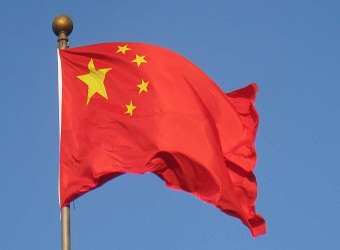China is laying out plans to become a world leader in artificial intelligence (AI) by 2030, with the aim of making the industry worth 1 trillion yuans ($147.7 billion).
The State Council released its three-step roadmap on Thursday outlining the thinking behind how it expects AI to be developed and deployed in areas from the military to city planning.
“Artificial intelligence has become a new engine of economic development,” the State Council’s document said according to a translation.
The first part of the plan runs up to 2020 and proposes that China makes progress in developing a “new generation” of AI theory and technology. This will be implemented in some devices and basic software. It will also involve the development of standards, policies, and ethics for AI across the world’s second-largest economy.
In the second step of the plan which is up to 2025, China expects to achieve a “major breakthrough” in AI technology and the application of it, which will lead to “industrial upgrading and economic transformation”.
The last step, which will happen between 2025 and 2030 sees China become the world leader in AI, with the industry worth 1 trillion yuan.
Military uses and smart cities
Beijing’s plan hopes to help accelerate the commercialization of AI in China for areas such as smart cities, but also military uses, something that could worry the broader international community.
Already the U.S. is taking note. A recent Pentagon report showed how worried the government was about Chinese firms investing in U.S. start-ups, suggesting that there might need to be tighter controls around this.
“If we allow China access to these same technologies concurrently, then not only may we lose our technological superiority, but we may even be facilitating China’s technological superiority,” the report says.
China’s tech giants in focus
China is home to some of the world’s largest technology companies such as Alibaba and Baidu, who are all focusing on developing their AI capabilities.
For example, Baidu has an AI research lab in Silicon Valley and is exploring areas like driverless cars. Meanwhile, Alibaba’s cloud division is focusing heavily on using AI in areas such as shopping to healthcare.
AI ‘pain’ to come
But the promise of AI also comes with warnings from top technologists about the potential impact on jobs and society as a whole. Tesla CEO Elon Musk, for example, has warned that AI could mean that a policy of universal basic income might have to be employed.
China’s top tech CEOs have also sounded the warning alarm.
Alibaba Chairman Jack Ma warned recently that society could see decades of pain thanks to the disruption caused by the internet and new technologies to different areas of the economy.
“In the coming 30 years, the world’s pain will be much more than happiness, because there are many more problems that we have come across,” Ma said in Chinese, speaking about potential job disruptions caused by technology in April.
It’s an outcome that the Chinese government has recognized too and in its plan has pledged to develop AI responsibly.
“While vigorously developing artificial intelligence, we must attach great importance to the possible risk,” the State Council’s document read.
Source: Reuters
